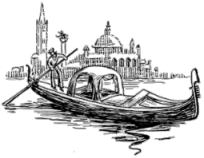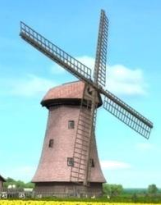1 . All I had to do for the two dollars was clean her house for a few hours after school. It was a beautiful house, too, with a plastic-covered sofa and chairs, wall-to-wall blue-and-white carpeting, a white enamel stove, a washing machine and a dryer—things that were common in her neighborhood, absent in mine. In the middle of the war, she had butter, sugar, steaks, and seam-up-the-back stockings.
I knew how to scrub floors on my knees and how to wash clothes in our zinc tub, but I had never seen a Hoover vacuum cleaner or an iron that wasn't heated by fire.
Part of my pride in working for her was earning money I could squander (浪费):on movies, candy, paddleballs, jacks, ice-cream cones. But a larger part of my pride was based on the fact that I gave half my wages to my mother, which meant that some of my earnings were used for real things—an insurance-policy payment or what was owed to the milkman or the iceman. The pleasure of being necessary to my parents was profound. I was not like the children in folktales: burdensome mouths to feed, nuisances to be corrected, problems so severe that they were abandoned to the forest. I had a status that doing routine chores in my house did not provide—and it earned me a slow smile, an approving nod from an adult. Confirmations that I was adultlike, not childlike.
In those days, the forties, children were not just loved or liked; they were needed. They could earn money; they could care for children younger than themselves; they could work the farm, take care of the herd, run errands(差事), and much more. I suspect that children aren't needed in that way now. They are loved, doted on, protected, and helped. Fine, and yet...
Little by little, I got better at cleaning her house—good enough to be given more to do, much more. I was ordered to carry bookcases upstairs and, once, to move a piano from one side of a room to the other. I fell carrying the bookcases. And after pushing the piano my arms and legs hurt so badly. I wanted to refuse, or at least to complain, but I was afraid she would fire me, and I would lose the freedom the dollar gave me, as well as the standing I had at home—although both were slowly being eroded. She began to offer me her clothes, for a price. Impressed by these worn things, which looked simply gorgeous to a little girl who had only two dresses to wear to school, I bought a few. Until my mother asked me if I really wanted to work for castoffs. So I learned to say "No, thank you" to a faded sweater offered for a quarter of a week5s pay.
Still, I had trouble summoning (鼓起)the courage to discuss or object to the increasing demands she made. And I knew that if I told my mother how unhappy I was she would tell me to quit. Then one day, alone in the kitchen with my father, I let drop a few whines about the job. I gave him details, examples of what troubled me, yet although he listened intently, I saw no sympathy in his eyes. No "Oh, you poor little thing. " Perhaps he understood that what I wanted was a solution to the job, not an escape from it. In any case, he put down his cup of coffee and said, 44Listen. You don't live there. You live here. With your people. Go to work. Get your money. And come on home. ”
That was what he said. This was what I heard:
Whatever the work is, do it well—not for the boss but for yourself.
You make the job; it doesn't make you.
Your real life is with us, your family.
You are not the work you do; you are the person you are.
I have worked for all sorts of people since then, geniuses and morons, quick-witted and dull, big-hearted and narrow. I've had many kinds of jobs, but since that conversation with my father I have never considered the level of labor to be the measure of myself, and I have never placed the security of a job above the value of home.
1. What is the "pleasure" of the author from the sentence "The pleasure of being necessary to my parents was profound. (paragraph 3) " ?| A.She was proud as she could earn money for her mother. |
| B.Her own value of being needed. |
| C.She is distinctive from those children in folktales. |
| D.She enjoyed a status of being an adult in her family. |
| A.Children become needed, loved and liked when they are at forty. |
| B.Children in modern times are less likely to be spoiled by parents. |
| C.Children in 1940s are capable as they can handle various daily routine. |
| D.Children in modern times aren' t needed to do daily works any more. |
| A.Don't escape from difficulties at work. |
| B.Whatever decision she made, her father would support her. |
| C.Convey her dissatisfaction with her work. |
| D.Make a distinction between work and life. |
| A.Don't regard work achievement as a criterion for evaluating oneself. |
| B.Hard work is a struggle for a better future in your limited life. |
| C.Parents are the best teachers of children. |
| D.Job security is less valuable when compared with family. |
| [1] I am often asked to describe the experience of raising a child with a disability-to try to help people who have not shared that unique experience to understand it, to imagine how it would feel. It’s like this… [2] When you’re going to have a baby, it’s like planning a marvellous vacation trip-to Italy. You buy a bunch of guidebooks and make wonderful plans: the Coloseum①, the Michelangelo② David, the gondolas③ in Venice, etc. You may learn some handy phrases in Italian. It’s all very exciting. [3] After months of eager expectation, the day finally arrives. You pack your bags and off you go. Several hours later, the plane lands. The airhostess comes in and says, “Welcome to the Netherlands.” [4] “The Netherlands?!” you say. “What do you mean, the Netherlands?? I signed up for Italy! I’m supposed to be in Italy. All my life I’ve dreamed of going to Italy.” [5] But there’s been a change in the flight plan. They’ve landed in the Netherlands and there you must stay. [6] The important thing is that they haven’t taken you to a horrible, awful, dirty place, full of diseases. It’s just a different place. [7] So you must go out and buy new guidebooks. And you must learn a whole new language. And you will meet a whole new group of people you would never have met. [8] It’s just a place. It’s slower paced than Italy, less flashy than Italy. But after you’ve been there for a while and you catch your breath, you look around and you begin to notice that the Netherlands④ …and the Netherlands has tulips⑤. The Netherlands even has Rembrandts⑥. [9] But everyone you coming and going from Italy and they’re all boasting about what a wonderful time they had there. And for the rest of your life, you will say, “Yes, that’s where I was supposed to go. That’s what I had planned. [10] And the pain of that will never, ever, ever, ever go away because the loss of that dream is a very, very significant loss. [11] But if you spend your life regretting the fact that you didn’t get to Italy, you may never be free to enjoy the very special, the very lovely things about the Netherlands. | ① ② (1475~1564) Italian artist and architect ③  ④  ⑤  ⑥(1606~1669) Dutch painter |
1. The author compares her motherhood to ________.
| A.her involvement in traveling abroad |
| B.her experience with an unfamiliar task |
| C.her dream of enjoying beautiful scenery |
| D.her journey to an unplanned destination |
| A.the Netherlands has many scenic spots to visit and enjoy |
| B.the Netherlands is a country with many paintings to appreciate |
| C.a mother of a disabled child can also feel the bright side of her life |
| D.a mother who has traveled a lot can receive a special treat from her child |
| A.proud | B.anxious | C.sociable | D.sensible |
| A.beyond her endurance | B.more a gift than a loss |
| C.worthy of others’ sympathy | D.preferable to going to Italy |



